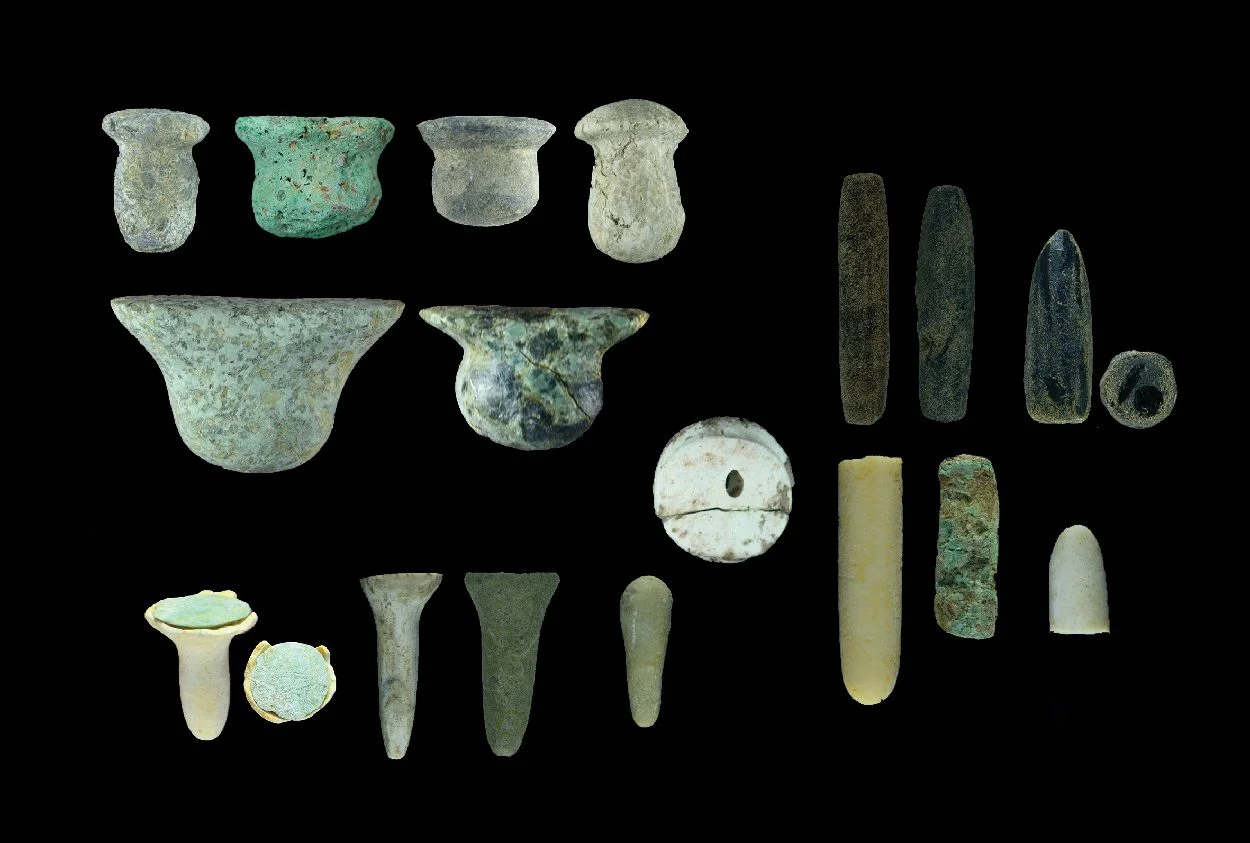In the quiet plains of Turkey lies a treasure trove of history, where the sands of time whisper tales of humanity's earliest expressions of identity and adornment. Recently unveiled by diligent archaeologists, the ancient site of Boncuklu Tarla has unraveled a mystery that stretches back over 11,000 years – the art of body perforation.
In a groundbreaking study published in the prestigious journal Antiquity, researchers unveiled a stunning collection of 100 earring-like ornaments discovered nestled beside the ears and chins of adult skeletons. Crafted from limestone, obsidian, and river pebbles, these artifacts offer a glimpse into the lives and rituals of early Neolithic communities.
What sets these ornaments apart is not just their age, but the profound symbolism they carry. Through meticulous analysis, it became clear that these piercings were not merely decorative; they were a rite of passage, marking the transition from youth to adulthood. Dr. Ergül Kodaş, one of the study's authors, remarked, "These piercings served as more than just adornments; they were a tangible expression of societal values and personal identity."
The significance of these findings extends beyond mere curiosity. They challenge our perceptions of ancient societies, revealing a sophistication and cultural richness that echoes through the ages. Dr. Emma L Baysal, an Associate Professor at Ankara University, emphasized the complexity of these ancient practices, stating, "They had very complex ornamentation practices involving beads, bracelets, and pendants, including a very highly developed symbolic world which was all expressed through the medium of the human body."
Moreover, the discovery sheds light on the universality of human experiences. Across continents and millennia, the impulse to adorn oneself, to mark significant moments in life, remains a constant thread in the fabric of humanity. As Dr. Kodaş aptly puts it, "It shows that traditions that are still very much part of our lives today were already developed at the important transitional time when people first started to settle in permanent villages in western Asia more than 10,000 years ago."
Beyond the allure of ancient beauty, this research underscores the importance of preserving our shared heritage. Each artifact unearthed at Boncuklu Tarla is a testament to our collective past, a story waiting to be told. By safeguarding these treasures, we honor the resilience and ingenuity of those who came before us, ensuring that their legacy endures for generations to come.
In the quiet expanse of Boncuklu Tarla, a silent echo reverberates through time – a reminder that even in the fleeting moments of our lives, we leave an indelible mark upon the world. As we gaze upon these ancient ornaments, we are reminded of our shared humanity, our shared journey through time, and the timeless quest for beauty and meaning that binds us all together.








